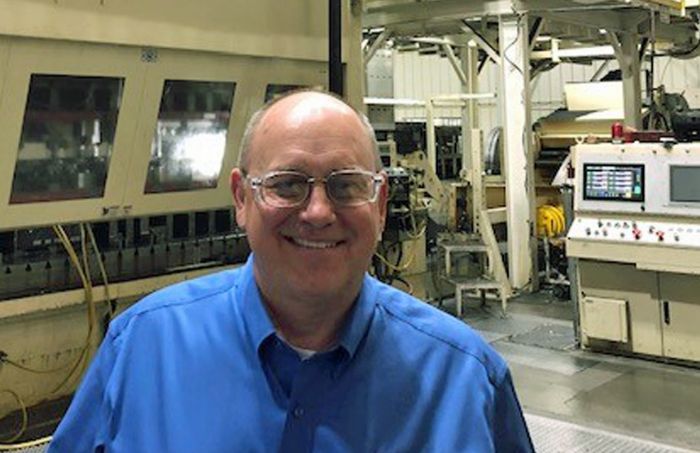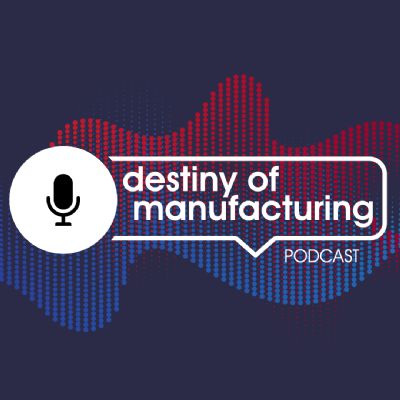The book also preaches that managers must understand the critical roles that operations plays regarding customer retention and the growth of existing accounts. Everyone in the company—sales as well as operations—must keep in mind that customers will look for a better supplier because of poor and unreliable on-time delivery; if they are unhappy with the price of the product; or if they don’t like the quality of the product or service you provide. The entire organization is in the customer-service business, and operations is key to solving customer-satisfaction issues.
Editor’s Note: Per an Amazon review of the book, “The Machine is a field guide for the executive who's prepared to wrestle sales away from autonomous field-based artisans in favor of a tightly synchronized team of specialists. Readers will embrace The Machine either to exploit the new sales order or to avoid falling victim to it.”
Q: What is the biggest challenge you face as a company leader?
Holtel: I find that building a winning culture is a constant challenge. I once heard, “Culture eats strategy for breakfast,” and I keep it in my daily planner as a reminder. Building a winning culture requires an environment that enables individuals to be successful and satisfied in their daily work. People need to know their role in the big picture, where they fit and how they can support the process. From there you can build an autonomous management style of work.
Manufacturing is rife with daily problems and challenges that easily can get in the way of success. A winning culture allows our employees, and teams, to effectively overcome these challenges—that’s what sets us apart. Watching cooperative teams working together for the desired outcome is a wonderful thing to witness!
Q: What are two or three of the most important things you look for in a mid-level manager?
Holtel: First and foremost, managers must be self-motivated and driven. They must set an example for others to follow. I also look for what I call “practical intelligence,” or excellent problem-solving skills. Manufacturing can be a stressful environment, exerting pressure to get the work out the door while maintaining quality and managing people and processes. This requires managers who can think quickly and efficiently solve problems. This happens when you have autonomous management—that’s the magic sauce.
And, managers must have effective people skills, be
empathetic and respectful to others, and be able to work with people from all
walks of life and experiences. The most
successful managers have well-developed people skills.
Q: What are two things that you believe your company is doing well? What's one thing that you wish you could change?
Holtel: We perform the technical side of the business at a very high level. I think the leap we are making in applying automation throughout all three of our facilities will keep us viable well into the future. We’re experiencing an automation evolution. We’re really good at automating the actual processes—welding and assembly, for example. Now we’re focused on automating the movement of stamped parts within the process cells, using vision-guided bin picking.
We’re also adept at developing the next generation of management through autonomous-management skills development at all levels of our operations. We’re teaching people not only about the business but about the decision making that is required throughout the day.
Unfortunately, like many manufacturers we must work hard to find new employees, and successfully onboard and retain them. We are making great strides in this area, however. For example, we recently implemented a new onboarding process where new employees begin their training in a classroom equipped with 3D-printed models of our presses and other equipment, prior to moving into the shop environment. The equipment can be intimidating to new hires, so we think this is an effective way to prepare them for what they’re going to experience in their day-to-day work, in a quiet, low-stress place. They even use a bar-code scanner and computer in the training room that allows them to enter production data into a Plex screen, just like they would in the shop.
Q: How do you encourage and motivate your management team?
Holtel: Ours is different than many organizations in that most of our management team has been working together for many years. We work and live in the same surrounding small-town communities, so we feel as if we are working with our neighbors. And, we all know that you always treat your neighbors with support and respect, and they do the same. We meet regularly to review our key metrics and discuss what we’re doing right, and where we can improve. We connect our performance with a profit-sharing program, shared by everyone in the organization.
Q: Can you provide an example of a solid management decision you made during the COVID-19 pandemic, and how it helped to address a major pandemic-related challenge?
Holtel: During the early days of the pandemic, we engaged our county health professionals and leaned on them for advice on how to manage operations. Once we established the protocols, we divided responsibilities for enacting the different procedures amongst our management team—taking temperatures, passing out masks, cleaning the equipment and work areas, etc. Although it was stressful, we came together as a team to manage the day-to-day operations as safely as possible.
Q: I assume it can be “lonely at the top” for you at times. How do you relax, release your stress and rise above the endless list of problems that you have to deal with each day?
Holtel: It’s important for me to be able to clear my mind of the constant day-to-day pressures. I have many interests outside of work, and I’m pretty good about flipping the switch from work to focus on other activities. You might find me enjoying a Sunday or evening out with friends or family, or I might be tinkering in the barn on an old car or piece of equipment. I also spend some quality time on the farm running a dozer or tractor.
Technologies: Management
 “I think the leap we are making in applying automation throughout all three of our facilities will keep us viable well into the future,” Holtel says. “We’re experiencing an automation evolution. We’re really good at automating the actual processes—welding and assembly, for example. Now we’re focused on automating the movement of stamped parts to those process cells, using vision-guided bin picking.”
“I think the leap we are making in applying automation throughout all three of our facilities will keep us viable well into the future,” Holtel says. “We’re experiencing an automation evolution. We’re really good at automating the actual processes—welding and assembly, for example. Now we’re focused on automating the movement of stamped parts to those process cells, using vision-guided bin picking.”








 Podcast
Podcast